- Home
- James Hadley Chase
Cade Page 11
Cade Read online
Page 11
‘Did Cade give you that picture, Henry?’
‘Oh, God! Now what’s biting you?’
‘It’s not in his contract to take news pictures,’ Burdick said. ‘You’ll pay him for that picture and you’ll respect his copyright. If it’s as good as you say it is, it will be reproduced all over the world. The Sun doesn’t own the copyright, just remember that.’
‘What do you think I am … a thief?’
‘You could be unless you’re closely watched, Henry,’ Burdick said and hung up.
He was scrambling into his clothes when he heard the front door open. Hastily zipping up his trousers, he came out of his bedroom.
Cade and a tall, blonde girl had entered the living-room.
‘Hello, Val,’ Burdick said and then looked at the girl. What a beaut! he thought Wherever did she drop from?
‘This is Vicki Marshall,’ Cade said, setting down his camera bag. ‘Her brother put a slug in Friedlander’s arm. She is going to stay the night here, out of the way of the reporters.’ He turned to the girl and went on, ‘No one will think of looking for you here, Miss Marshall. Just take it easy and try to stop worrying. I have an idea I can fix it for your brother. I’m going down to the Sun now. I’ll be back in a couple of hours.’
The girl walked slowly around the table, shedding her black, light-weight coat. She seemed in a state of shock. Her large violet-blue eyes were empty of expression, her full red lips were trembling.
‘Sit down,’ Cade said gently. ‘It’s going to work out. You take it easy until I get back.’ To Burdick, he went on, ‘You coming, Ed?’
‘Sure. Henry is yelling for me.’
‘Then let’s go.’
Vicki Marshall was now sitting in one of the lounging chairs, her head down, her fine gold hair falling forward and hiding her face.
Cade signalled to Burdick and the two men left the apartment. On the way down in the elevator, Cade said, ‘It’s knocked her sideways. She and the boy are pretty close.’
‘Some girl!’ Burdick said. ‘What a looker! Any idea what she does?’
‘From what I saw in her place, she is a fashion artist. Very good stuff. I thought it best to get her out of the way. She wanted to go to him, of course, but I persuaded her to wait.’
Ten minutes later, they walked into Mathison’s office. Joel Bernstein was already there. The well-known criminal lawyer was short, fat and aggressive. He was studying one of Cade’s photos of Friedlander. He stood up as Mathison made the introductions. The three men shook hands.
‘I wouldn’t want a picture like this printed if I were Friedlander,’ Bernstein said, dropping the print on the desk.
Burdick examined it, then whistled. Here was a fat, ageing face of evil and corruption, every wrinkle cruelly etched, the heavy bags under the eyes in deep shadows, the slack ruthless, mean mouth twisted in a snarl.
‘We’re not using it,’ Cade said quietly. ‘We can do a deal with Friedlander. We’ll use the others.’
‘We won’t!’ Mathison exploded. ‘That’s the one! What are you talking about? These others are nothing!’
Burdick flicked through the other prints.
‘They flatter the old fairy,’ he said. ‘That’s the one, Val.’
Cade looked at Mathison.
‘These photographs are my property, Henry. You can have the others for free. They show Friedlander’s bandaged arm and that’s news. They are also exclusives. This one will not be used unless I say so.’
‘You can’t stop me using it!’ Mathison said furiously.
‘He can, you know,’ Burdick said, ‘and he can slug the Sun for infringement of copyright.’
Cade turned to Bernstein.
‘We could get this thing settled quickly. Would you see Friedlander and show him this print? If he will drop the charges against Marshall and say it was an accident, we don’t print, but if he wants it rough, he can have it rough.’
Bernstein thought for a moment, then nodded.
‘Nice idea.’ He put the print in his brief-case. ‘I’ll get over there right away.’
‘Now, wait a minute …’ Mathison shouted, banging-his fist on the desk. ‘You …’
But Bernstein walked out of the office without even looking at Mathison.
There was a pause, then Mathison said, ‘Do you realise, Val, you could have sold that picture to every paper in the world? You could have cleaned up big with it. What’s the matter with you?’
‘Nothing. There are times when money isn’t everything. I would like to get the boy off … that’s all there is to it.’
Watching him, Burdick wondered if it was the sister and not the boy who was influencing Cade. He hoped it was.
An hour later, Bernstein telephoned.
‘It worked,’ he said to Mathison who answered the call. ‘I’m on my way down to Police Headquarters. Friedlander is dropping the charge. It’s lucky it was his gun and not Marshall’s. His story is Marshall found the gun in a drawer, didn’t realise it was loaded, picked it up and it went off.’
Mathison breathed heavily.
‘But everyone will know it’s a lie.’
‘Of course, but they won’t be able to prove it’s a lie.’
Mathison looked at the remaining prints of Friedlander and Jerry Marshall. At least he had the exclusives, even if the story was dead.
‘Okay,’ he said. ‘Thanks for calling.’
‘I’ll have the boy out in an hour. He’ll have to appear in court tomorrow, but that will be a formality. I’ll take care of it all,’ Bernstein said and suddenly laughed. ‘This fellow Cade is something pretty special. It never occurred to me to blackmail Friedlander. He certainly knows his psychology.’
‘Yes, doesn’t he?’ Mathison said sourly and hung up. Cade and Burdick were waiting outside police headquarters when Jerry Marshall came out, surrounded by excited press men. An angry cop cleared the way for him to Cade’s car. Getting in, with flashlights popping, Marshall flopped on the back seat as Cade drove away.
‘Mr. Bernstein told me what you did for me, Mr. Cade,’ Marshall said. ‘I owe you a lot. Anyway, thanks.’
‘You owe more to your sister, Jerry. She’s a pretty nice girl. Try to remember that in the future, will you?’
Burdick smiled to himself. There was a note in Cade’s voice he hadn’t heard before. Burdick had heard about Juana. He had a feeling that Vicki Marshall could be the antidote that he was hoping sooner or later Cade would find.
Cade pulled up outside their apartment.
‘Go on up,’ he said to Marshall. ‘We’ll take a drive around. Take her home and keep out of mischief. We want to be in bed in a couple of hours so be out of our place by then.’
Marshall got out of the car. He bent to look at Cade.
‘Vicki will want to thank you. Please come up with me.’
Cade shook his head.
‘What do I want with thanks? Don’t keep her waiting. So long, Jerry,’ and he pulled away from the kerb.
‘Nice work,’ Burdick said, lighting a cigarette, ‘and nice girl.’
‘Yes,’ Cade said.
They drove in silence along the traffic-packed streets, and from time to time Burdick glanced at Cade. The relaxed expression on Cade’s face, the far-away look in his eyes pleased Burdick. This was the first sign that the inner pain and tension that Burdick knew was always with Cade was beginning to lessen.
The following morning, the two men left New York for Hollywood. This was an assignment that had been set up two weeks previously. They were to do an article on the forgotten movie stars, an opportunity for Cade’s camera work that Mathison was sure would be unique.
They returned to New York ten days later. Cade had been following the Friedlander case in the newspapers. The affair had been quickly disposed of as Bernstein had promised. Marshall had been discharged, and Friedlander had gone to Rome to recuperate.
Among his pile of mail, waiting for him at the apartment, was a short note from Vicki Marshall.
/>
Dear Mr. Cade,
I want to thank you for what you did for Jerry. Could we meet? Would you come here when you have a free moment? I am at home most evenings.
yours sincerely,
Vicki Marshall.
The same evening, Cade rang on her front door-bell. He found this girl serious, gentle, understanding and artistic, the companion he had always hoped to find, but up to this moment, had believed a mirage of his imagination.
They talked until two o’clock in the morning. Jerry, she said had gone to Canada. He had a friend in Vancouver who ran a skittle alley and had been pressing Jerry to work with him as his partner. It was a pretty nightmare thing, she said, to have a brother who was homosexual, but it was something you just had to accept. They had always got on well together, and were very fond of each other, but she realised now they were better parted.
She told Cade she was a tremendous admirer of his work. She talked about some of his recent successes, and it pleased him she really knew what she was talking about. This wasn’t idle flattery.
When he finally looked at his watch and saw the time, he got to his feet.
‘I have a few free days,’ he said. ‘How are you fixed? Could we go somewhere tomorrow? We could get out of town …’
She looked at the clutter of drawings on the big table under the window.
‘I can’t. I would love to, but not tomorrow. You could come here tomorrow evening for dinner. Would you like that?’
‘Very much. All right, suppose we go out? I know a place …’
She smiled.
‘Are you afraid of my cooking?’
He suddenly thought of Juana. Vicki saw his sudden expression of pain and she said quickly, ‘Then let’s go out. I would like that.’
‘No, I would prefer to come here. It’s nicer here.’
For the next ten days, he was around at her apartment every evening. It was after the fourth evening, after he had told her about Juana, about his drinking, about the nightmare weeks when he had lived in an Indian shack not caring whether he was alive or dead that he realised he was in love with her. He was careful to say nothing although he felt she was also in love with him. The ghost of Juana was too close still and too dangerous. He was frightened of starting something that would come to pieces as the Juana episode had come to pieces.
He welcomed the assignment that took him and Burdick to Paris. It was May, and Burdick thought they should do an article on the American tourist invasion of Paris. Cade agreed. He needed time and distance to get his association with Vicki into perspective. He thought continuously of her while in Paris, and on the flight back, eight days later, he made his decision. He would get his divorce, and as soon as he was free, he would ask Vicki to marry him.
Without saying anything to Burdick, he consulted a lawyer, specialising in divorce. He was told there would be no difficulty. Mexican divorces went through quickly and easily. He would have to go down to Mexico City for a couple of weeks. The lawyer gave him the address of his Mexican representative who he said would arrange everything.
Cade told Mathison he had sudden urgent personal business to take care of and would be out circulation for two weeks. That was all right with material. He had plenty of Cade’s material to run on.
Cade told Burdick he was going to Mexico to get his divorce. Guessing what was in the wind, Burdick wished him luck.
Cade spent the evening before his departure with Vicki. He said nothing about the divorce. He feared there might be an unexpected snag, and until he was sure he was free, he couldn’t bring himself to confide in her. He said he had to go to Mexico to clear up some outstanding business.
The following morning, he flew to Mexico City.
SIX
Cade walked through the main lobby of El Prado hotel where Rivera’s fifty-foot-long A Dream on a Sunday Afternoon mural was being gaped at by a large gathering of American tourists.
He had had a lonely lunch in the grill room. He wasn’t sure now what he was going to do with himself. The day was Sunday. He had spent the past three days talking to his Mexican lawyers who airily told him there would be no difficulty about the divorce, but kept asking him to consult with them, to sign papers, and to check and recheck the obvious evidence of Juana’s adultery which he was now sick of explaining to them.
He walked to the bookstall with the idea of getting a paperback and then going to sit in the Alameda Gardens until the sun went down.
‘Senor Cade!’
He looked around and was confronted by Adolfo Creel’s beaming face. A great weight of loneliness lifted from him. To see this fat Mexican who had been such a good friend to him was the nicest thing he imagined could happen to him. But as he shook hands, he felt a twinge of guilt that he hadn’t contacted Creel before. He knew why. Creel was too close to his past, but now they were together, Cade felt nothing but pleasure.
‘This is a very special moment in my life, senor,’ Creel said, his eyes moist with emotion. ‘I had no idea you were here. You look wonderful! Senor Cade! I am very, very happy !’
‘That makes two of us,’ Cade said. ‘Let’s have a drink or something and talk. Have you the time?’
‘Of course.’ Creel went with Cade into the dimly-lit bar. ‘I don’t have to ask. All is well with you. I have seen your magnificent work for the Sun. Forgive a stupid, uneducated man like myself, but your photographs move me.’
Cade was glad of the dim lighting. He squeezed Creel’s fat arm. It wasn’t until they were sitting side by side on the padded bench and Cade had ordered a Coke for himself and a coffee for Creel, that he was able to say in a steady enough voice, ‘Adolfo, for Pete’s sake, stop calling me Senor Cade. I regard you as the best friend I have ever had. Call me Val, and what is all this nonsense about being stupid and uneducated?’
Creel squirmed with pleasure. ‘Tell me please. Why are you here?’
Without hesitation, Cade told him about Vicki.
‘This girl, Adolfo, means everything to me. I’m here for a divorce. You must meet her. She is everything that Juana isn’t. I guess I was crazy getting mixed up with that woman. Now, I’m seeing sense at last. All I want is to be free of her.’
Creel put three lumps of sugar into his coffee.
‘That I can understand. Juana is not for you. She has a fatal destiny. She thinks only of the body and of money. This is a disease with her.’
Cade jiggled the ice cubes in his glass.
‘What has happened to her?’
‘She is here,’ Creel said.
Cade felt a sudden tightening in his throat.
‘Still with Diaz?’
‘No. Here then is an example of her destructiveness. When they returned from Spain, it was all over. This afternoon, I am going to see what I hope will be Pedro Diaz’s last bull fight.’
Cade stared at him.
‘What do you mean … his last fight?’
‘He is now a wreck of a man. Yes, I know, through him you were brutally beaten. He was arrogant, cruel and vicious, but he had courage. She has taken away his courage so he has nothing left but his skill, but skill is nothing without courage. You would be sorry for him if you saw him. Last Sunday they threw bottles at him. The Sunday before they whistled at him. This afternoon …’ Creel lifted his fat hands and let them drop heavily on his knees.
‘But why, Adolfo?’
The fat Mexican looked at him, then away.
‘Do you remember a certain Indian shack? You ask why?’
Cade flinched.
‘What goddamn fools we men are, aren’t we?’
‘Yes, I suppose you can say that in truth. She has a fatal fascination.’
‘What about her?’
‘She is living in the house you once rented in the Chapultepec Park. At the moment she is unattached. Diaz gave her many expensive presents. She goes every night to the San Pablo night club where the rich Americans are. She arranges her life very well.’
Cade forced his mind away from the image
that came suddenly of her brown, sensual beauty and the long black tresses acting as a shield to the most exciting body he had ever known.
‘Could I come with you, Adolfo? I want to see Diaz fight.’
‘That I can understand. Yes, there will be plenty of seats. It is only those who expect tragedy who go now to watch Diaz: the vultures who hope for death.’
‘Yet you go?’
‘It is an ending of a chapter,’ Creel said, shrugging. ‘I have lived a little of my life with you, with her and with Diaz. It was because of him, I lost my tyres. We Mexicans remember small things like that. Perhaps I am also one of the vultures, but when something begins, I wish to see it finish.’
At 16.20 hours, they made their way down the steps to their seats at the barrera, right by the red-painted fence around the sanded ring. As Adolfo had said there were plenty of seats, but there was still a big crowd.
Below and a few yards from where they sat, Cade could see the sword handlers of the three matadors who were fighting that afternoon. He easily recognised Regino Franoco, wearing a white shirt with bishop’s sleeves and wine coloured trousers. He was honing a sword, his movements expert and practised, a sullen frown on his face.
Seeing Cade watching, Creel said. ‘Yes, he is still with Diaz … one of the faithful. When they threw bottles last Sunday, he wept.’
On the far side of the ring, in the direct light of the sun, they were forming up for the paseo.
Cade recognised Pedro Diaz who was in silver and black. He stood, waiting, flanked on either side by two matadors: both elderly and fat, one of them bald. Behind them were the men of the curilla. Behind them, the mounted picadors.
With their right arms swinging, the men began to march across the sand, followed by the bull ring servants and the mules.
Cade was aware of a feeling of sick excitement, aware too that his heart was thumping unsteadily. As the three matadors made their bows to the President, he examined Diaz.
Yes, Adolfo was right. There was nothing there now but a shell. The cruel, hawk-like face that had made one of Cade’s finest photographs was now slack and flabby. The small eyes moved uneasily, the thin mouth was twitching.

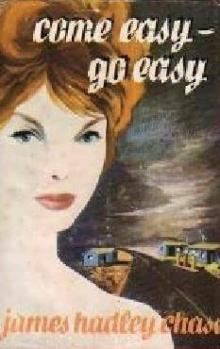 Come Easy, Go Easy
Come Easy, Go Easy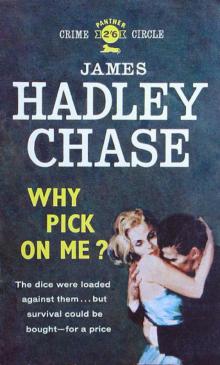 Why Pick On ME?
Why Pick On ME?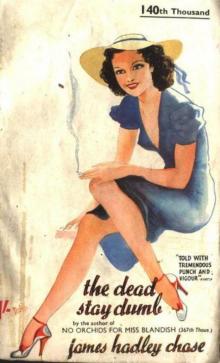 The Dead Stay Dumb
The Dead Stay Dumb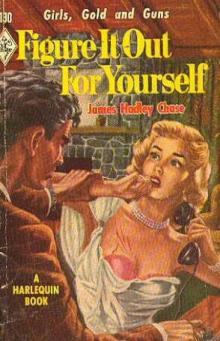 Figure it Out For Yourself
Figure it Out For Yourself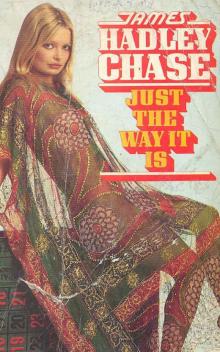 1944 - Just the Way It Is
1944 - Just the Way It Is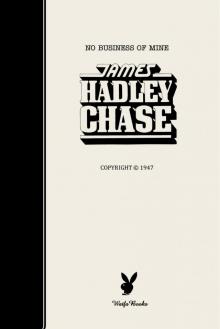 No Business Of Mine
No Business Of Mine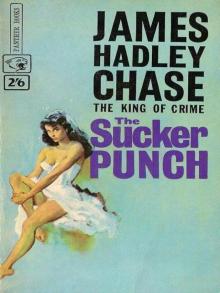 1953 - The Sucker Punch
1953 - The Sucker Punch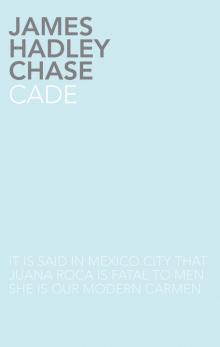 Cade
Cade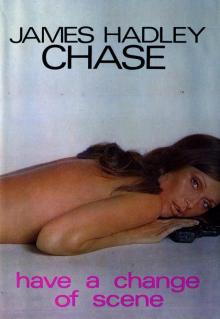 1973 - Have a Change of Scene
1973 - Have a Change of Scene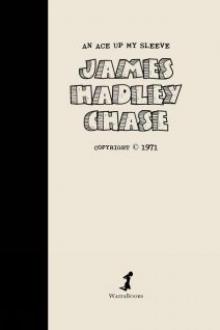 An Ace up my Sleeve
An Ace up my Sleeve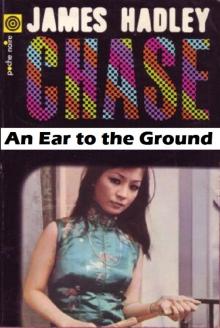 1968-An Ear to the Ground
1968-An Ear to the Ground 1950 - Figure it Out for Yourself
1950 - Figure it Out for Yourself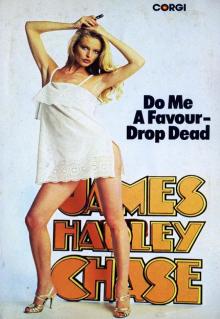 1976 - Do Me a Favour Drop Dead
1976 - Do Me a Favour Drop Dead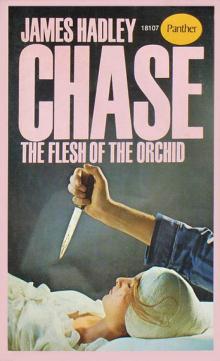 The Flesh of The Orchid
The Flesh of The Orchid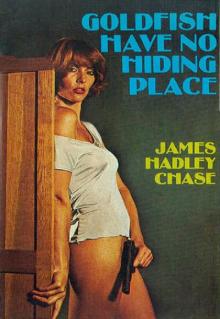 1974 - Goldfish Have No Hiding Place
1974 - Goldfish Have No Hiding Place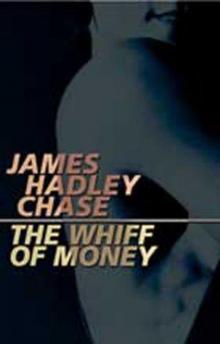 Whiff of Money
Whiff of Money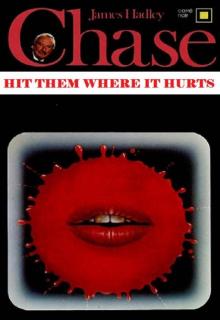 1984 - Hit Them Where it Hurts
1984 - Hit Them Where it Hurts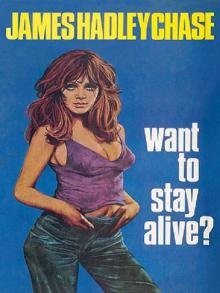 1971 - Want to Stay Alive
1971 - Want to Stay Alive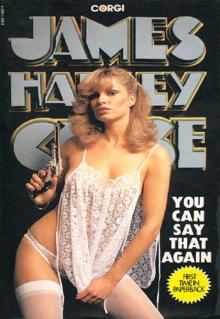 1980 - You Can Say That Again
1980 - You Can Say That Again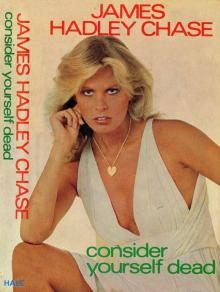 1978 - Consider Yourself Dead
1978 - Consider Yourself Dead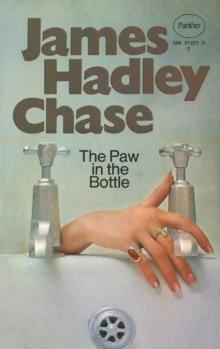 The Paw in The Bottle
The Paw in The Bottle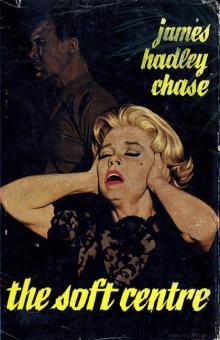 Soft Centre
Soft Centre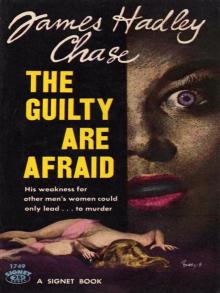 The Guilty Are Afraid
The Guilty Are Afraid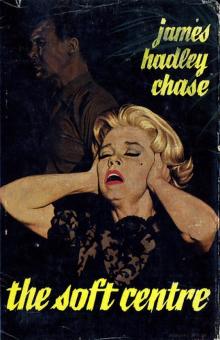 The Soft Centre
The Soft Centre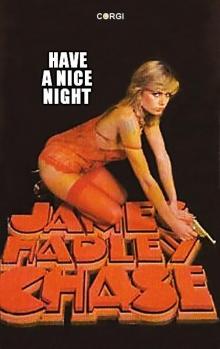 Have a Nice Night
Have a Nice Night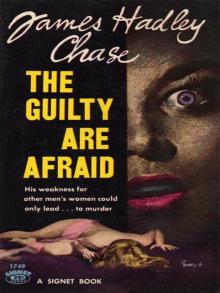 1957 - The Guilty Are Afraid
1957 - The Guilty Are Afraid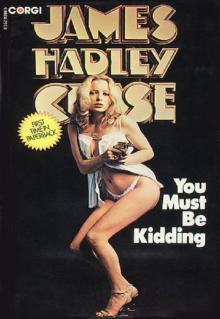 1979 - You Must Be Kidding
1979 - You Must Be Kidding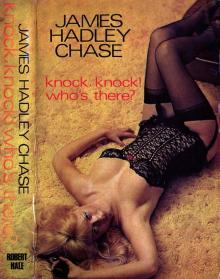 Knock, Knock! Who's There?
Knock, Knock! Who's There?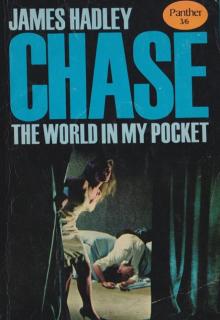 1958 - The World in My Pocket
1958 - The World in My Pocket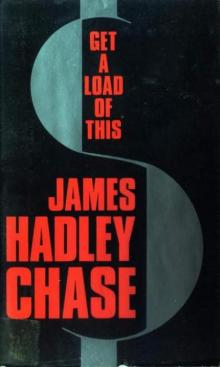 Get a Load of This
Get a Load of This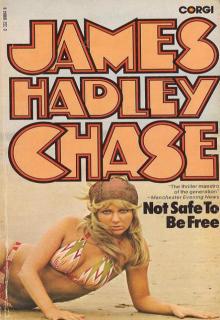 1958 - Not Safe to be Free
1958 - Not Safe to be Free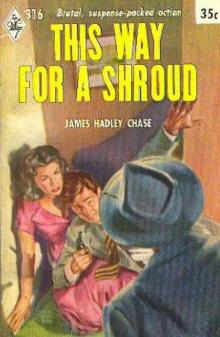 This Way for a Shroud
This Way for a Shroud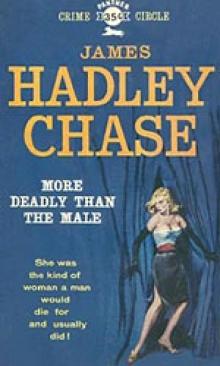 More Deadly Than the Male
More Deadly Than the Male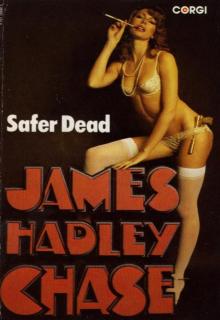 Safer Dead
Safer Dead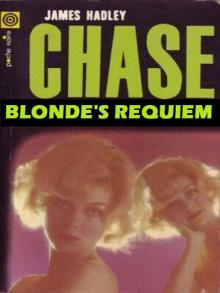 1945 - Blonde's Requiem
1945 - Blonde's Requiem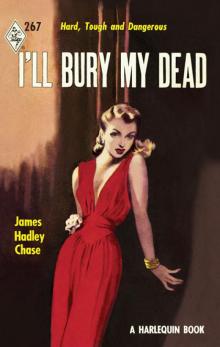 I'll Bury My Dead
I'll Bury My Dead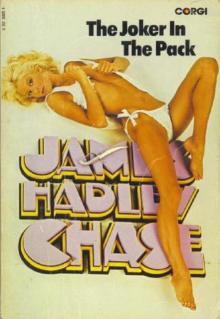 1975 - The Joker in the Pack
1975 - The Joker in the Pack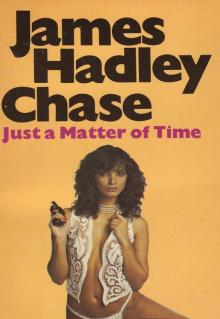 1972 - Just a Matter of Time
1972 - Just a Matter of Time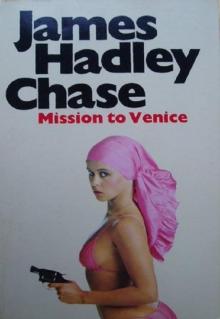 1954 - Mission to Venice
1954 - Mission to Venice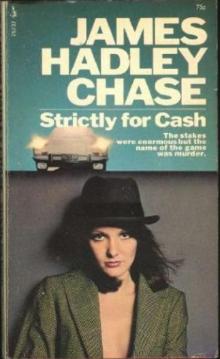 Strictly for Cash
Strictly for Cash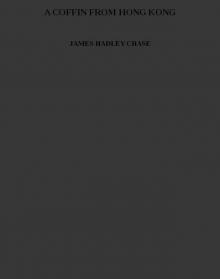 A COFFIN FROM HONG KONG
A COFFIN FROM HONG KONG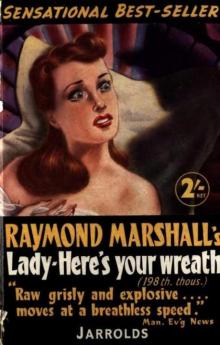 Lady—Here's Your Wreath
Lady—Here's Your Wreath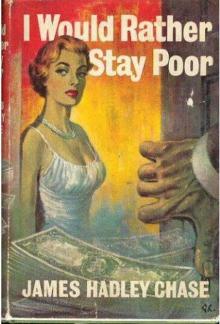 I Would Rather Stay Poor
I Would Rather Stay Poor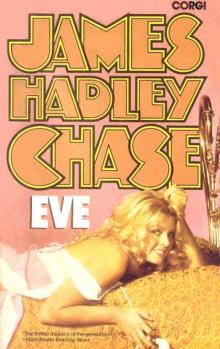 Eve
Eve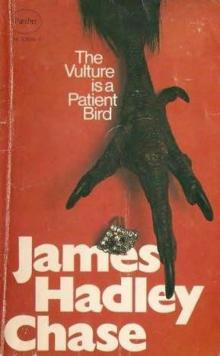 Vulture Is a Patient Bird
Vulture Is a Patient Bird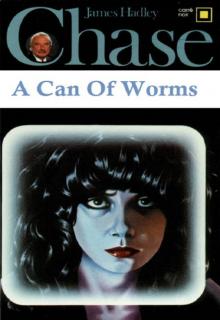 1979 - A Can of Worms
1979 - A Can of Worms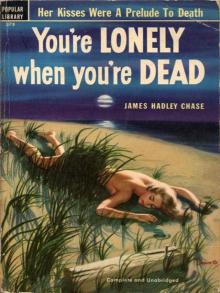 1949 - You're Lonely When You Dead
1949 - You're Lonely When You Dead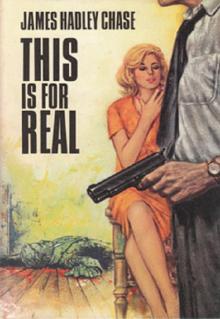 1965 - This is for Real
1965 - This is for Real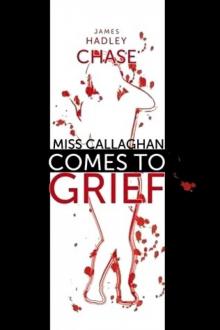 (1941) Miss Callaghan Comes To Grief
(1941) Miss Callaghan Comes To Grief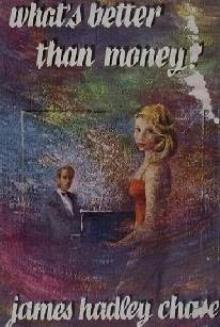 What`s Better Than Money
What`s Better Than Money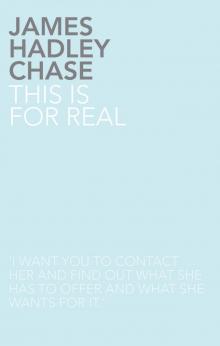 This is For Real
This is For Real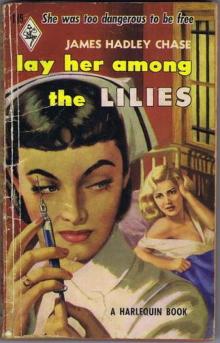 Lay Her Among the Lilies vm-2
Lay Her Among the Lilies vm-2 Knock Knock Whos There
Knock Knock Whos There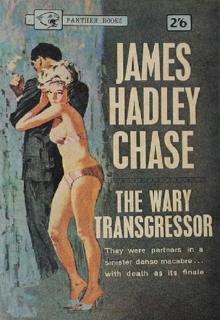 1952 - The Wary Transgressor
1952 - The Wary Transgressor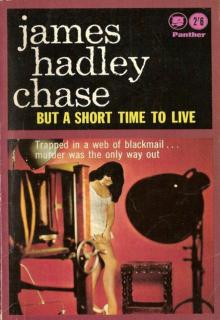 1951 - But a Short Time to Live
1951 - But a Short Time to Live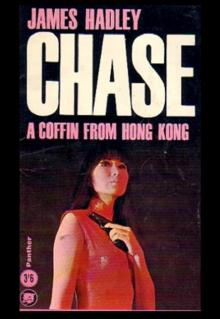 1962 - A Coffin From Hong Kong
1962 - A Coffin From Hong Kong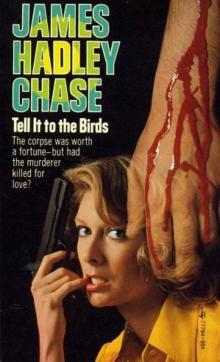 Tell It to the Birds
Tell It to the Birds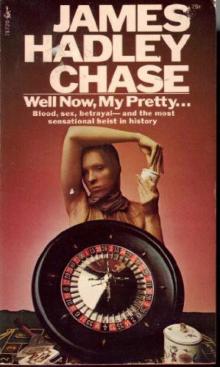 Well Now, My Pretty…
Well Now, My Pretty…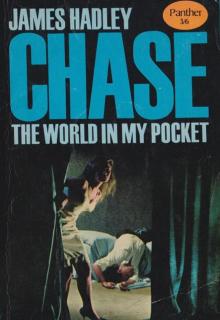 The World in My Pocket
The World in My Pocket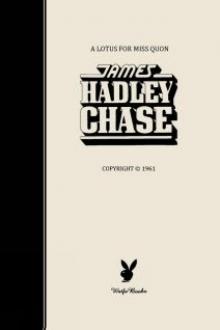 A Lotus for Miss Quon
A Lotus for Miss Quon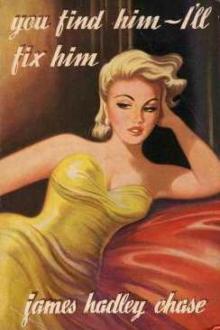 You Find Him, I'll Fix Him
You Find Him, I'll Fix Him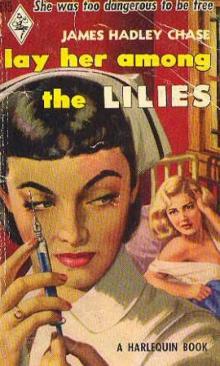 Lay Her Among The Lilies
Lay Her Among The Lilies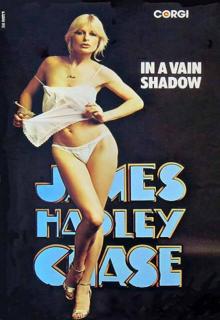 1951 - In a Vain Shadow
1951 - In a Vain Shadow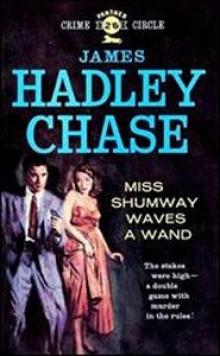 Miss Shumway Waves a Wand
Miss Shumway Waves a Wand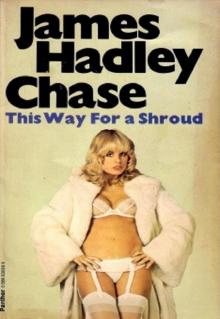 1953 - This Way for a Shroud
1953 - This Way for a Shroud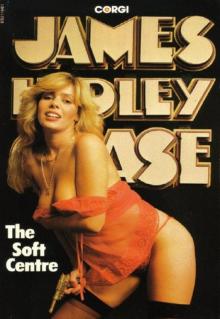 1964 - The Soft Centre
1964 - The Soft Centre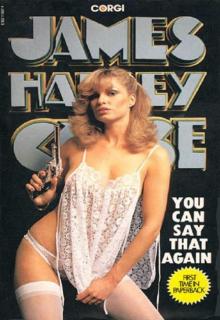 You Can Say That Again
You Can Say That Again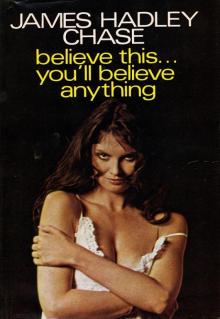 1975 - Believe This You'll Believe Anything
1975 - Believe This You'll Believe Anything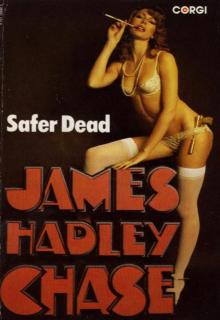 1954 - Safer Dead
1954 - Safer Dead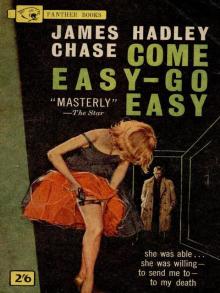 1960 - Come Easy, Go Easy
1960 - Come Easy, Go Easy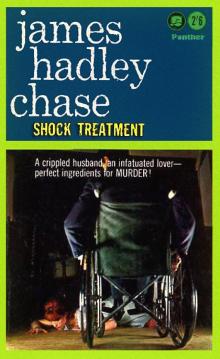 Shock Treatment
Shock Treatment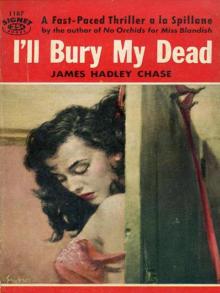 1953 - I'll Bury My Dead
1953 - I'll Bury My Dead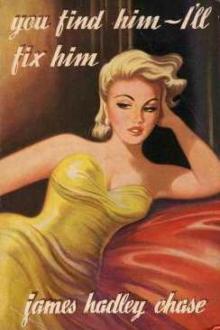 You Find Him – I'll Fix Him
You Find Him – I'll Fix Him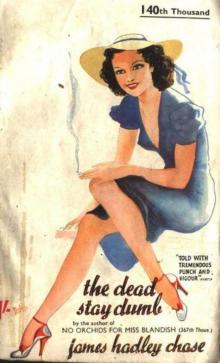 Dead Stay Dumb
Dead Stay Dumb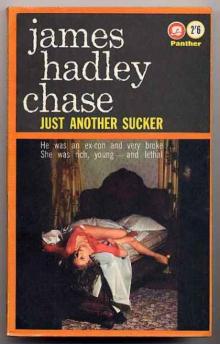 Just Another Sucker
Just Another Sucker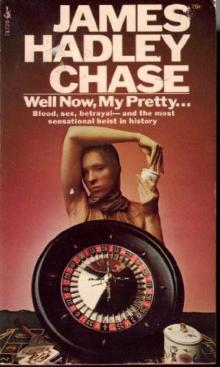 Well Now My Pretty
Well Now My Pretty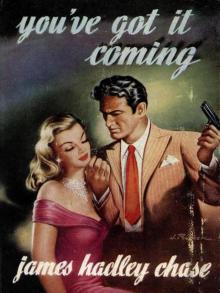 You've Got It Coming
You've Got It Coming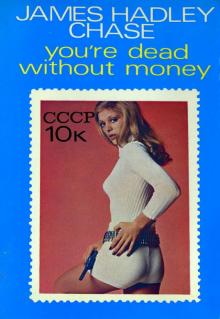 1972 - You're Dead Without Money
1972 - You're Dead Without Money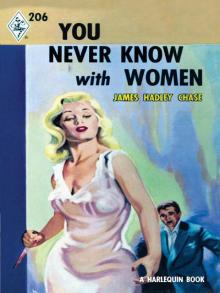 1955 - You Never Know With Women
1955 - You Never Know With Women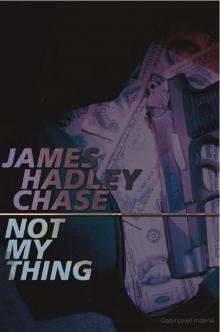 Not My Thing
Not My Thing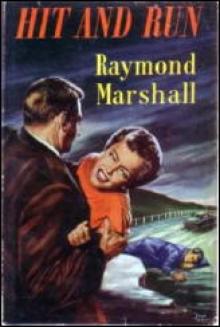 Hit and Run
Hit and Run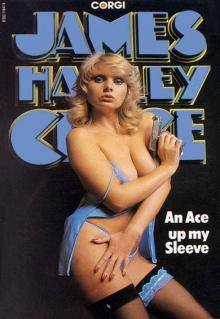 1971 - An Ace Up My Sleeve
1971 - An Ace Up My Sleeve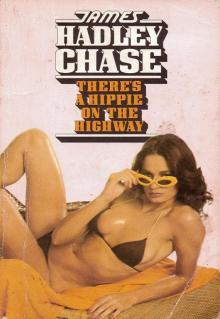 1970 - There's a Hippie on the Highway
1970 - There's a Hippie on the Highway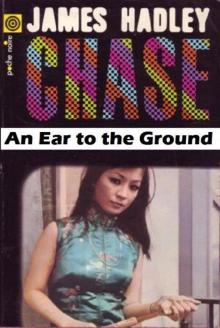 1968 - An Ear to the Ground
1968 - An Ear to the Ground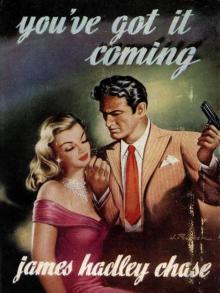 1955 - You've Got It Coming
1955 - You've Got It Coming 1963 - One Bright Summer Morning
1963 - One Bright Summer Morning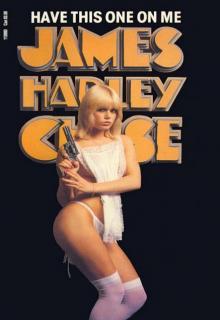 1967 - Have This One on Me
1967 - Have This One on Me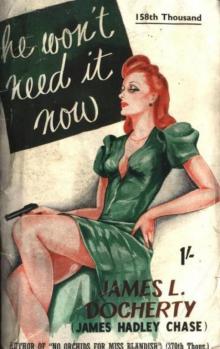 He Won't Need It Now
He Won't Need It Now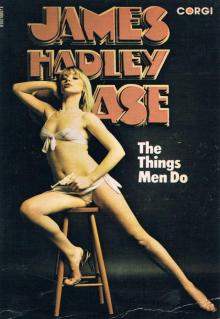 1953 - The Things Men Do
1953 - The Things Men Do Believed Violent
Believed Violent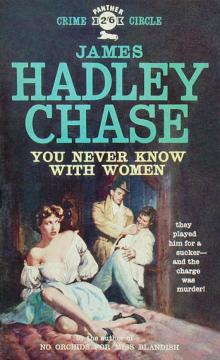 You Never Know With Women
You Never Know With Women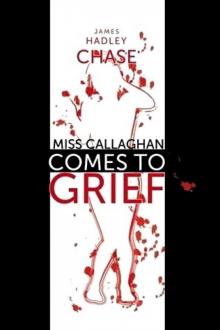 Miss Callaghan Comes to Grief
Miss Callaghan Comes to Grief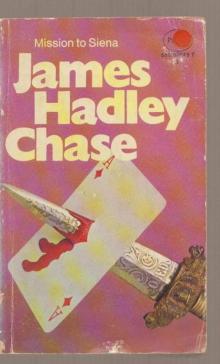 Mission to Siena
Mission to Siena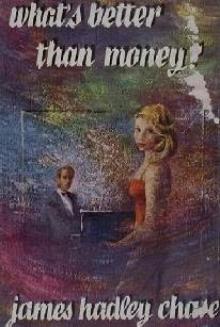 What's Better Than Money
What's Better Than Money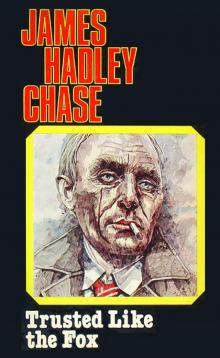 Trusted Like The Fox
Trusted Like The Fox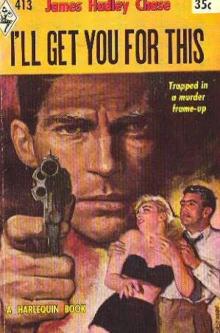 I'll Get You for This
I'll Get You for This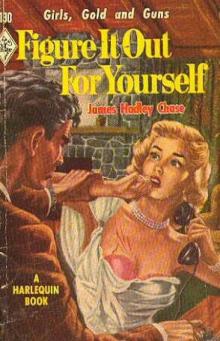 Figure It Out for Yourself vm-3
Figure It Out for Yourself vm-3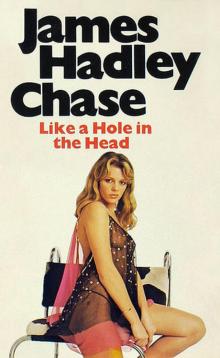 Like a Hole in the Head
Like a Hole in the Head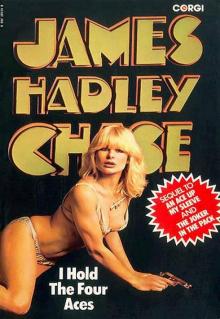 1977 - I Hold the Four Aces
1977 - I Hold the Four Aces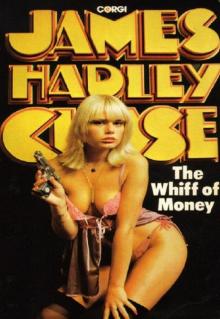 1969 - The Whiff of Money
1969 - The Whiff of Money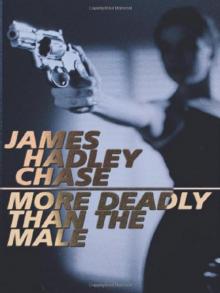 1946 - More Deadly than the Male
1946 - More Deadly than the Male 1956 - There's Always a Price Tag
1956 - There's Always a Price Tag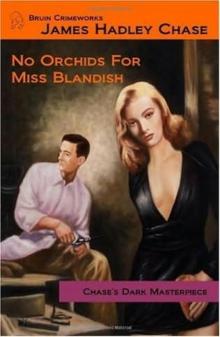 No Orchids for Miss Blandish
No Orchids for Miss Blandish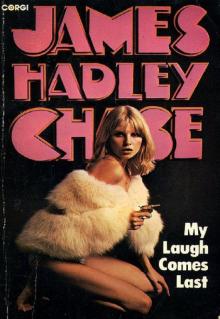 1977 - My Laugh Comes Last
1977 - My Laugh Comes Last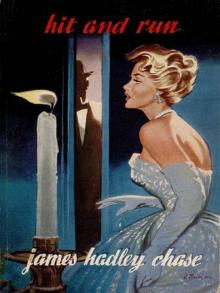 1958 - Hit and Run
1958 - Hit and Run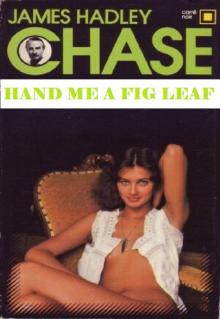 1981 - Hand Me a Fig Leaf
1981 - Hand Me a Fig Leaf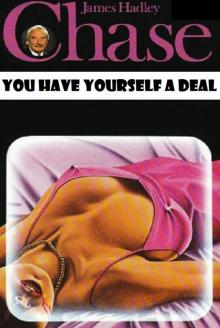 1966 - You Have Yourself a Deal
1966 - You Have Yourself a Deal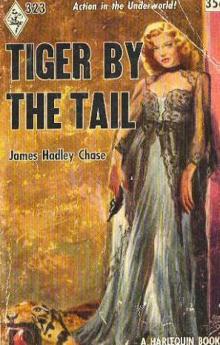 Tiger by the Tail
Tiger by the Tail